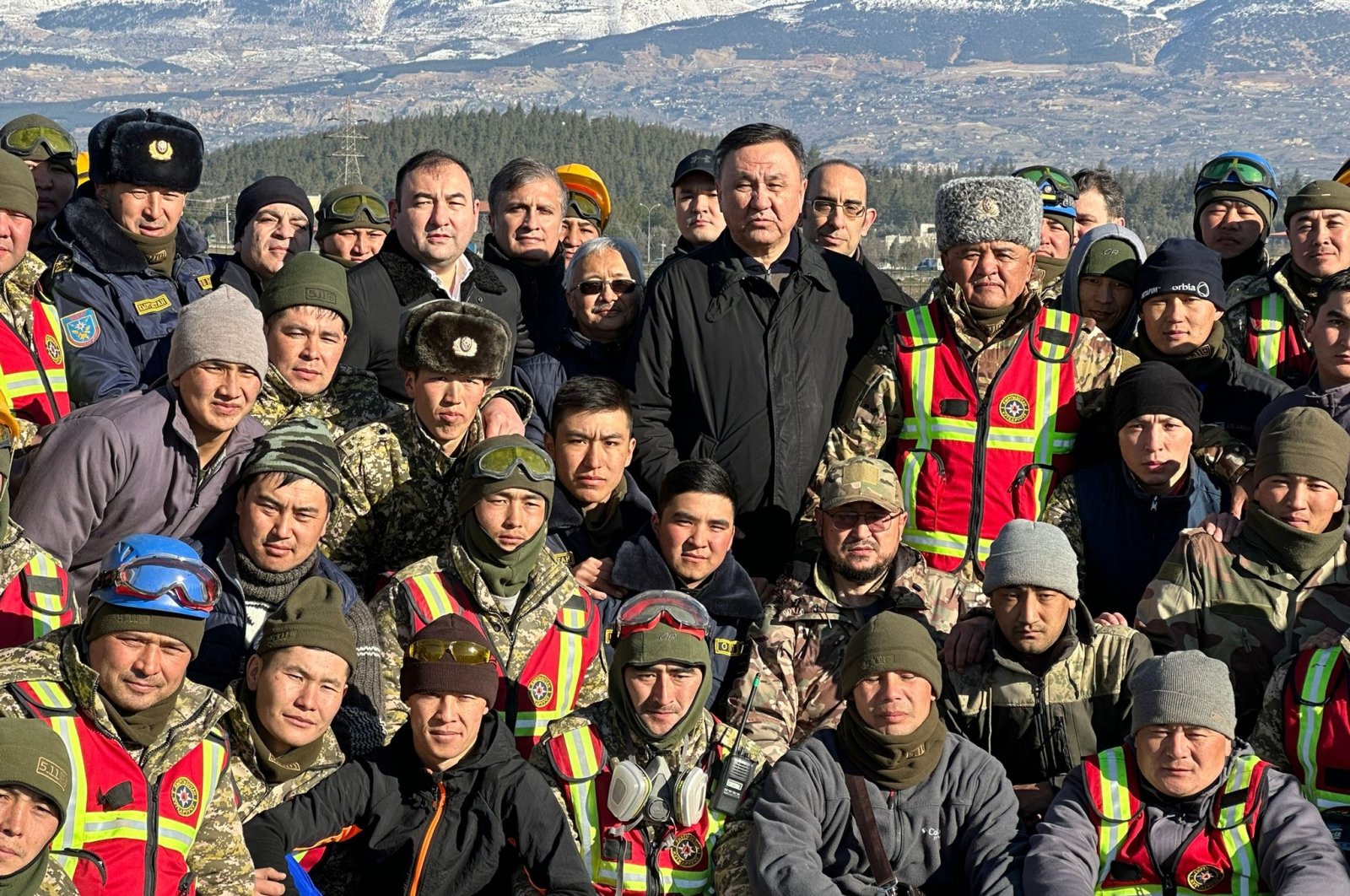
The Organization of Turkic States' response to the disaster in the country's south serves as a testament to the strength of the bonds of the Turkic world, OTS Secretary-General Kubanychbek Omuraliev said
"The Turkic world has shown that they are united in the face of not only political and economic issues but also humanitarian disasters,” said Kubanychbek Omuraliev, the secretary-general of the Organization of Turkic States (OTS), in an exclusive interview with Daily Sabah following the deadly twin earthquakes that recently shook Türkiye.
In the interview, held in the organization’s Istanbul headquarters, Omuraliev emphasized the crucial role that the OTS played in responding to the disaster and mobilizing member states to provide aid and support to those affected, estimated to be over 13.5 million people.
On Feb. 6, earthquakes measuring 7.7 and 7.6 on the Ritcher scale hit southern Türkiye, directly affecting 11 provinces with Kahramanmaras as the epicenter. According to the latest figures, the death toll stands at over 44,200, and it is expected to climb as search crews continue to remove rubble.
Omuraliev was among the officials who visited the quake zones and participated in rescue and relief operations conducted by teams sent by Turkic countries. "What I saw there was a real tragedy, pain and loss,” he said, but added, "The support provided by the countries worldwide, including the Turkic world, was priceless and has raised our hopes for the sake of humanity.”
"From state mechanisms to ordinary citizens, from students studying in Türkiye to volunteers, the Turkic world was dedicated only to saving people stuck under the rubble,” he said.
According to Omuraliev, the disaster areas demonstrated the power of collective action and served as a testament to the strength of the bonds of the Turkic world and the importance of cooperation in times of crisis.
Aid in numbers
The OTS was one of the first responders to the disaster, quickly coordinating member states to join rescue operations led by Türkiye’s Disaster and Emergency Management Authority (AFAD).
A total of 1,832 rescuers and medical personnel, including doctors, paramedics, nurses, psychologists and cynologists, were sent by the OTS states, while 53 rescue dogs were in the field to save lives. Nine field hospitals were established, and donation campaigns were launched. Thousands of tons of humanitarian aid, including medicines and textile products, were provided.
"NGOs, public and private institutions have also been collecting financial aid and other forms of assistance to donate and support the people suffering the consequences of the quake,” Omuraliev said.
The staff members of the Turkic organization alone provided TL 100,000 ($5,300) in financial aid, as well as 22 boxes of humanitarian aid, including clothes, diapers and blankets.
Praising the "tireless work” of the Turkic states in the quake zones, Omuraliev said that, "The OTS has been working closely with the AFAD since the very first moment of the natural disaster to coordinate the response and ensure that the support provided is effective and targeted.”
Besides the field assistance, the Kyrgyz diplomat also commended the emotional and psychological unity of the societies. "Solidarity with the fraternal Turkish people has been echoed by messages of support pouring in through social media from the Turkic world,” he underlined.
The March summit
The OTS, formerly known as the Cooperation Council of Turkic Speaking States, is an inter-state bloc with the primary objective of encouraging comprehensive cooperation among Turkic states. It has four founding members: Azerbaijan, Kazakhstan, Kyrgyzstan and Türkiye.
Uzbekistan joined as a full member during the seventh annual summit in Baku in October 2019. Hungary was granted observer status in 2018, Turkmenistan followed, and the Turkish Republic of Northern Cyprus (TRNC) became the latest observer member last year.
In the event that Turkmenistan becomes a member, the organization established in 2009 will encompass all Central Asian nations that use languages belonging to the Turkic language family.
The Turkic organization is now preparing for its annual meeting in March, and the disaster in Türkiye is expected to be a top priority on the agenda.
Speaking about the upcoming meeting, Omuraliev said, "The response to the earthquakes in Türkiye showed that we can achieve great things when we work together, and this will certainly be discussed in March."
The secretary-general sees the approaching summit as an excellent opportunity to strengthen the bond between member states, which was evident in the collective response to the disaster.
He also emphasized that the unity of the Turkic world is not just a matter of rhetoric, but a reality. He stated that the upcoming March summit will further highlight this reality and demonstrate that "the Turkic world is strongly united.”
